 W
WThe Irish state came into being in 1919 as the 32 county Irish Republic. In 1922, having seceded from the United Kingdom of Great Britain and Ireland under the Anglo-Irish Treaty, it became the Irish Free State. It comprised 32 counties until 6 counties under the control of Unionists, opted out. The 1937 constitution renamed the 'Southern Ireland' state 'Ireland'. In 1949, only 26 counties explicitly became a republic under the terms of the Republic of Ireland Act 1948, definitively ending its tenuous membership of the British Commonwealth. In 1973 the Republic of Ireland joined the European Communities.
 W
WThe Irish state came into being in 1919 as the 32 county Irish Republic. In 1922, having seceded from the United Kingdom of Great Britain and Ireland under the Anglo-Irish Treaty, it became the Irish Free State. It comprised 32 counties until 6 counties under the control of Unionists, opted out. The 1937 constitution renamed the 'Southern Ireland' state 'Ireland'. In 1949, only 26 counties explicitly became a republic under the terms of the Republic of Ireland Act 1948, definitively ending its tenuous membership of the British Commonwealth. In 1973 the Republic of Ireland joined the European Communities.
 W
WThe current Constitution of Ireland came into effect on 29 December 1937, repealing and replacing the Constitution of the Irish Free State, having been approved in a national plebiscite on 1 July 1937 with the support of 56.5% of voters in the then Irish Free State. The Constitution was closely associated with Éamon de Valera, the President of the Executive Council of the Irish Free State at the time of its approval.
 W
WAer Lingus Flight 712 crashed en route from Cork to London on 24 March 1968 killing all 61 passengers and crew. The aircraft, a Vickers Viscount 803 named "St. Phelim", crashed into the sea off Tuskar Rock, County Wexford. Although the investigation into the crash lasted two years, a cause was never determined. Causes proposed in several investigative reports include possible impact with birds, a missile or target drone, or mechanical and structural failures.
 W
WThe Arms Crisis was a political scandal in the Republic of Ireland in 1970 in which Charles Haughey and Neil Blaney were dismissed as cabinet ministers for alleged involvement in a conspiracy to smuggle arms to the Irish Republican Army in Northern Ireland. At the ensuing Arms Trial, charges against Blaney were dropped, and Haughey and the other alleged conspirators were found not guilty. Blaney claimed that the then government knew about the plan, while Haughey denied this.
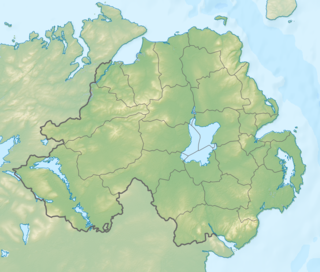 W
WThe border campaign was a guerrilla warfare campaign carried out by the Irish Republican Army (IRA) against targets in Northern Ireland, with the aim of overthrowing British rule there and creating a united Ireland. It was also referred to as the "resistance campaign" by some Irish republican activists. The campaign was a military failure, but for some of its members was justified as it kept the IRA engaged for another generation.
 W
WThe Constitution of Ireland is the fundamental law of Ireland. It asserts the national sovereignty of the Irish people. The constitution is broadly within the tradition of liberal democracy, being based on a system of representative democracy. It guarantees certain fundamental rights, along with a popularly elected non-executive president, a bicameral parliament, a separation of powers and judicial review.
 W
WÉire is Irish for "Ireland", the name of an island and a sovereign state occupying part of the island, officially named Ireland in English, and often referred to as the "Republic of Ireland". The same name is also sometimes used in English.
 W
WChristopher Thomas Ewart Ewart-Biggs, was the British Ambassador to Ireland, an author and senior Foreign Office liaison officer with MI6. He was killed in 1976 by the Provisional Irish Republican Army in Sandyford, Dublin.
 W
WThe Irish Boundary Commission met in 1924–25 to decide on the precise delineation of the border between the Irish Free State and Northern Ireland. The 1921 Anglo-Irish Treaty, which ended the Irish War of Independence, provided for such a commission if Northern Ireland chose to secede from the Irish Free State, an event that occurred as expected two days after the Free State's inception on 6 December 1922. The governments of the United Kingdom, of the Irish Free State and of Northern Ireland were to nominate one member each to the commission. When the Northern government refused to cooperate, the British government assigned a Belfast newspaper editor to represent Northern Irish interests.
 W
WThe Irish Civil War was a conflict that followed the Irish War of Independence and accompanied the establishment of the Irish Free State, an entity independent from the United Kingdom but within the British Empire.
 W
WThe Declaration of Independence was a document adopted by Dáil Éireann, the revolutionary parliament of the Irish Republic, at its first meeting in the Mansion House, Dublin, on 21 January 1919. It followed from the Sinn Féin election manifesto of December 1918. Texts of the declaration were adopted in three languages: Irish, English and French.
 W
WThe Irish Free State was a state established in 1922 under the Anglo-Irish Treaty of December 1921. That treaty ended the three-year Irish War of Independence between the forces of the Irish Republic, the Irish Republican Army (IRA), and British Crown forces.
 W
WThe Irish Free State Act 1922 was an Act of the Parliament of the United Kingdom passed on 5 December 1922. The Act dealt with a number of matters concerning the Irish Free State, which was established on the day after the Act became law; it also modified the Government of Ireland Act 1920 in relation to Northern Ireland.
 W
WThe Irish Republic was a revolutionary state that declared its independence from the United Kingdom in January 1919. The Republic claimed jurisdiction over the whole island of Ireland, but by 1920 its functional control was limited to only 21 of Ireland's 32 counties, and British state forces maintained a presence across much of the north-east, as well as Cork, Dublin and other major towns. The republic was strongest in rural areas, and through its military forces was able to influence the population in urban areas that it did not directly control.
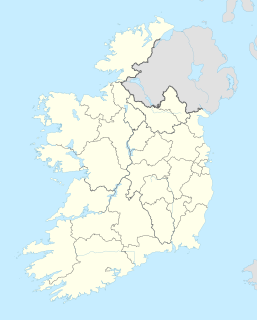 W
WThe Kerry Babies case was a 1984 investigation by the Garda Síochána in County Kerry, Ireland into the killing of one newborn baby and the alleged killing of another. The mother who concealed the second baby, Joanne Hayes, was arrested and charged with the murder of the first baby, of which she was erroneously thought to be the mother. The Gardaí were forced to drop the charges four years later and a tribunal of inquiry was launched. Its report was critical of the Garda conduct of the investigations, and also concluded that Hayes had precipitated the death of her baby. Hayes has disputed this finding, and no charges were pressed. The parents and killer of the first baby have never been identified. In 2020, the Irish State formally apologised after 36 years to Joanne Hayes for wrongly accusing her of the murder and for the "appalling hurt and distress caused."
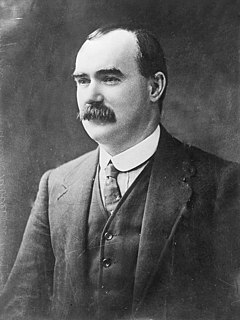 W
WThe Labour Party has been part of the political scene in the Republic of Ireland throughout that state's existence. Although never attracting majority support, it has repeatedly participated in coalition governments.
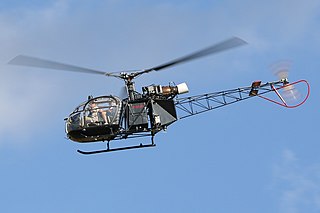 W
WThe Mountjoy Prison helicopter escape occurred on 31 October 1973 when three Provisional Irish Republican Army (IRA) volunteers escaped from Mountjoy Prison in Dublin, Ireland, aboard a hijacked Alouette II helicopter, which briefly landed in the prison's exercise yard. The escape made headlines around the world and was an embarrassment to the Irish coalition government of the time, led by Fine Gael's Liam Cosgrave, which was criticised by opposition party Fianna Fáil. A manhunt involving twenty thousand members of the Irish Defence Forces and Garda Síochána was launched for the escapees, one of whom, Seamus Twomey, was not recaptured until December 1977. The Wolfe Tones wrote a song celebrating the escape called "The Helicopter Song", which topped the Irish popular music charts.
 W
WAccording to the Constitution of Ireland, the names of the Irish state are 'Ireland' and 'Éire' . From 1922 to 1937, its legal name was 'the Irish Free State'. The state has jurisdiction over almost five-sixths of the island of Ireland. The rest of the island is Northern Ireland, a part of the United Kingdom. Consequently, other formal and informal names have been used when it is necessary to distinguish between the territory of the state and the island as a whole. In 1948 it adopted the term Republic of Ireland as the 'official description of the state', without changing the constitutional names.
 W
WThe Republic of Ireland Act 1948 is an Act of the Oireachtas which declared that the description of the state Ireland was to be the Republic of Ireland, and vested in the president of Ireland the power to exercise the executive authority of the state in its external relations, on the advice of the Government of Ireland. The Act was signed into law on 21 December 1948 and came into force on 18 April 1949, Easter Monday, the 33rd anniversary of the beginning of the Easter Rising.
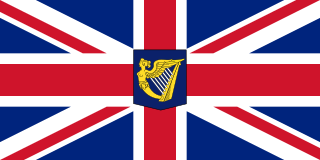 W
WSouthern Ireland was the larger of the two parts of Ireland that were created when Ireland was partitioned by the Government of Ireland Act 1920. It comprised 26 of the 32 counties of Ireland or about five-sixths of the area of the island, whilst the remaining six counties in the northeast of the island formed Northern Ireland. Southern Ireland included County Donegal, despite it being the largest county in Ulster and the most northerly county in all of Ireland.
 W
WThe Spanish Civil War lasted from July 17, 1936 to April 1, 1939. While both sides in the Spanish Civil War attracted participants from Ireland, the majority sided with the Nationalist faction.